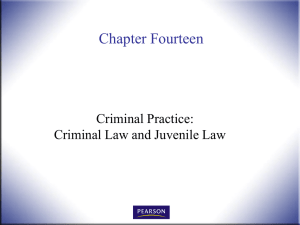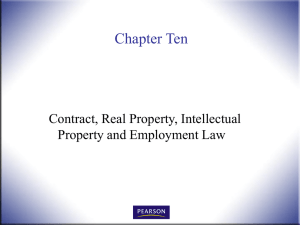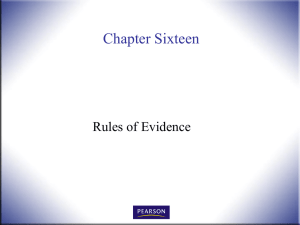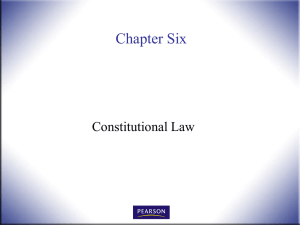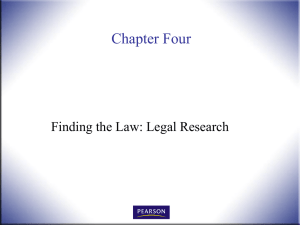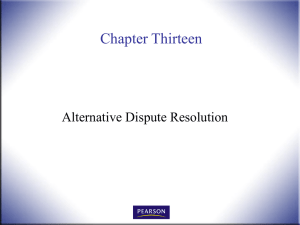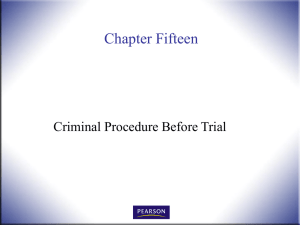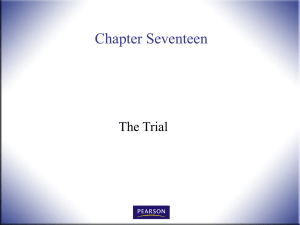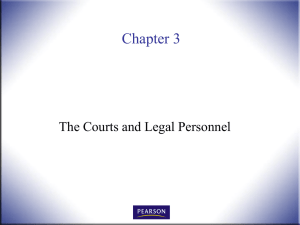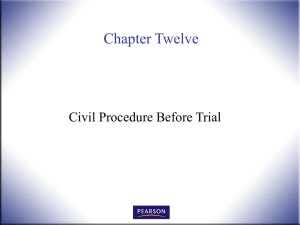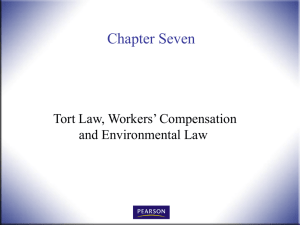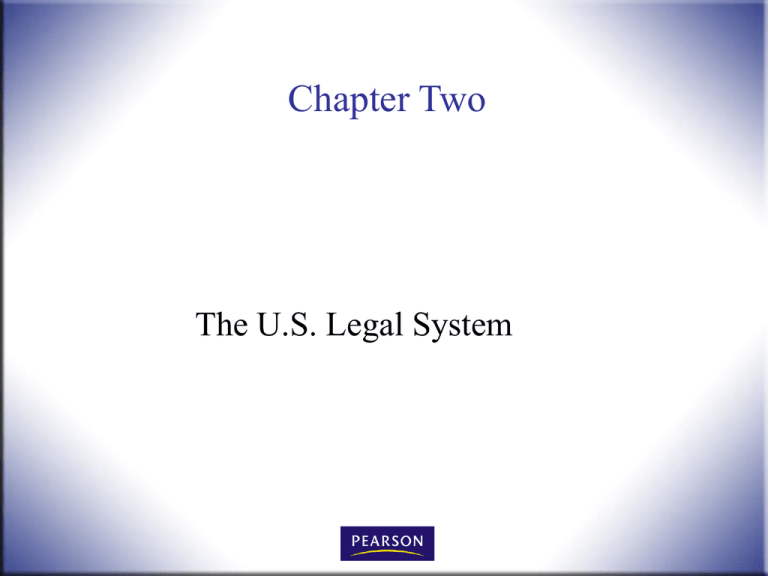
Chapter Two
The U.S. Legal System
Federalism
U.S. citizens are subject to federal and state
governments
Introduction to Law, 4th Edition
Hames and Ekern
2
© 2010 Pearson Higher Education,
Upper Saddle River, NJ 07458. • All Rights Reserved.
Powers of the Federal Government
Limited Powers;
Express powers are granted to the U.S.
Congress in Article I, Section 8 of the
Constitution, which gives Congress the right to
regulate such matters as the coining of money,
the post office, and the military.
Introduction to Law, 4th Edition
Hames and Ekern
3
© 2010 Pearson Higher Education,
Upper Saddle River, NJ 07458. • All Rights Reserved.
Powers of the State Government
States have very broad powers to make
laws that control within the state
boundaries.
They cannot make laws that conflict
with federal laws in areas that are
preempted by the federal government.
Introduction to Law, 4th Edition
Hames and Ekern
4
© 2010 Pearson Higher Education,
Upper Saddle River, NJ 07458. • All Rights Reserved.
The Supremacy Clause
Conflicts often exist between laws made
by the federal government and laws
made by states.
Where a conflict exists, federal law
controls. This is because of the
supremacy clause of Article VI of the
U.S. Constitution.
Introduction to Law, 4th Edition
Hames and Ekern
5
© 2010 Pearson Higher Education,
Upper Saddle River, NJ 07458. • All Rights Reserved.
Texas v. Johnson
What happened at the Republican National Convention
is 1984?
What happened at Johnson’s trial?
What was the holding of the Texas Court of Criminal
Appeals? What was their reasoning?
What was the holding of the United States Supreme
Court?
Introduction to Law, 4th Edition
Hames and Ekern
6
© 2010 Pearson Higher Education,
Upper Saddle River, NJ 07458. • All Rights Reserved.
Sources of Law
Constitutions
Statutory
Federal and State
Federal and State
Legislative enactments
Case Law
Federal and State
Stare Decisis
Introduction to Law, 4th Edition
Hames and Ekern
7
© 2010 Pearson Higher Education,
Upper Saddle River, NJ 07458. • All Rights Reserved.

